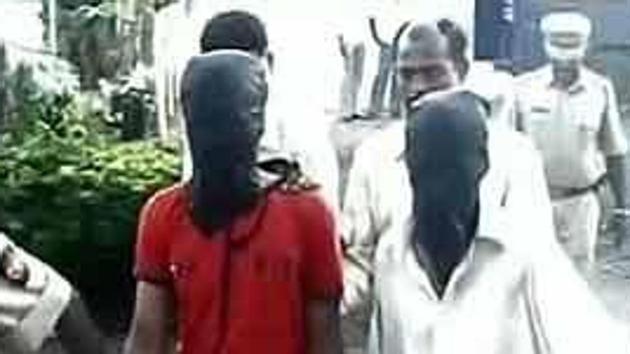Bombay HC commutes death sentence to 35 yrs in jail in Pune BPO rape, murder case
Government argued that gravity of lapses was not such to warrant commutation of death sentence to life imprisonment; especially when capital punishment was confirmed by high court and Supreme Court.
The Bombay high court on Monday commuted the death sentence for two convicts to life in prison, or a minimum of 35 years, each, on the grounds of the execution being delayed.

The court commuted the death sentence handed to Purushottam Borate and Pradeep Kokade, convicted for raping and killing Jyoti Kumari Choudhary, a BPO employee in Pune, on November 1, 2007.
A division bench headed by Justice BP Dharmadhikari has now sentenced Borate and Kokade to imprisonment for a period of 35 years.
“We find that the delay in execution of death penalty in present matter is undue, inordinate and unreasonable,” said the bench, commenting on the delay of more than four years in executing the accused.
This includes two years taken to process the mercy pleas sent to the governor of Maharashtra.
The bench held that delay in execution of convicts by any arm of the state would be violative of the fundamental rights of the accused and the extra, or additional, punishment resulting from such an avoidable delay cannot be legalised, because it is on account of the undue time taken by a Constitutional functionary.
“Such additional punishment is unconstitutional in all circumstances and contingencies,” said the bench, adding, “Quantum or period thereof is also not very material.”
Apart from the grounds of delay, the bench also upheld their contention that their mercy pleas were rejected without considering the material aspects of the case.
The duo had approached the high court after the trial court, on April 10, 2019, issued death warrants - fixing June 24, 2019, as the date for carrying out of the sentence.
The duo sought commutation of the death sentence primarily on the grounds that the delay had resulted in violation of their fundamental right to life.
The plea alleged that there was an “undue and avoidable delay of 1,509 days” in carrying out the sentence, including “deferment of 774 days” on their mercy petitions submitted to the governor of Maharashtra.
Both, Borate and Kokade submitted petitions to the governor on July 10, 2015 – two months after the Supreme Court upheld the death sentence.
The pleas were rejected 774 days later, on the date March 29, 2016.
The bench found that material information like copy of the trial court verdict and the fact that Kokade was 19-years and two-months old when he committed the crime was not placed before the governor.
The bench refused to accept this claim.
It said provisions of the jail manual imposes a duty on the state government to fix the date and place of execution of convicts on death row.
Also, mere communication of the governor’s decision to the trial court was not sufficient compliance of the jail manual requirement.
In his separate petition, 30-year-old Kokade alleged that both, Borate and himself, were shifted to solitary confinement on March 20, 2012, the day on which the Pune Sessions Court convicted them of abducting, raping and killing the BPO employee, and sentenced them to death.
The plea further contended that solitary confinement was impermissible, referencing a Supreme Court ruling that held that under Section 73 of the Criminal Procedure Code only courts have the power to send a prisoner to solitary confinement.
Kokade complained that the isolation of seven years has resulted in development of severe mental health issues in his case.
The state government responded to the petition stating the authorities had immediately informed the trial court about the governor’s decision to reject the mercy petitions filed by the duo and therefore, there was no delay on part the of the state, as such.
The government also argued that even if the claim of the duo as regards the delay was accepted, as is, the gravity of the lapses was not such that would warrant commutation of death sentence to life imprisonment; this is especially when the capital punishment was confirmed by high court and the Supreme Court.
Get Current Updates on India News, Lok Sabha election 2024 live, Election 2024 along with Latest News and Top Headlines from India and around the world.



